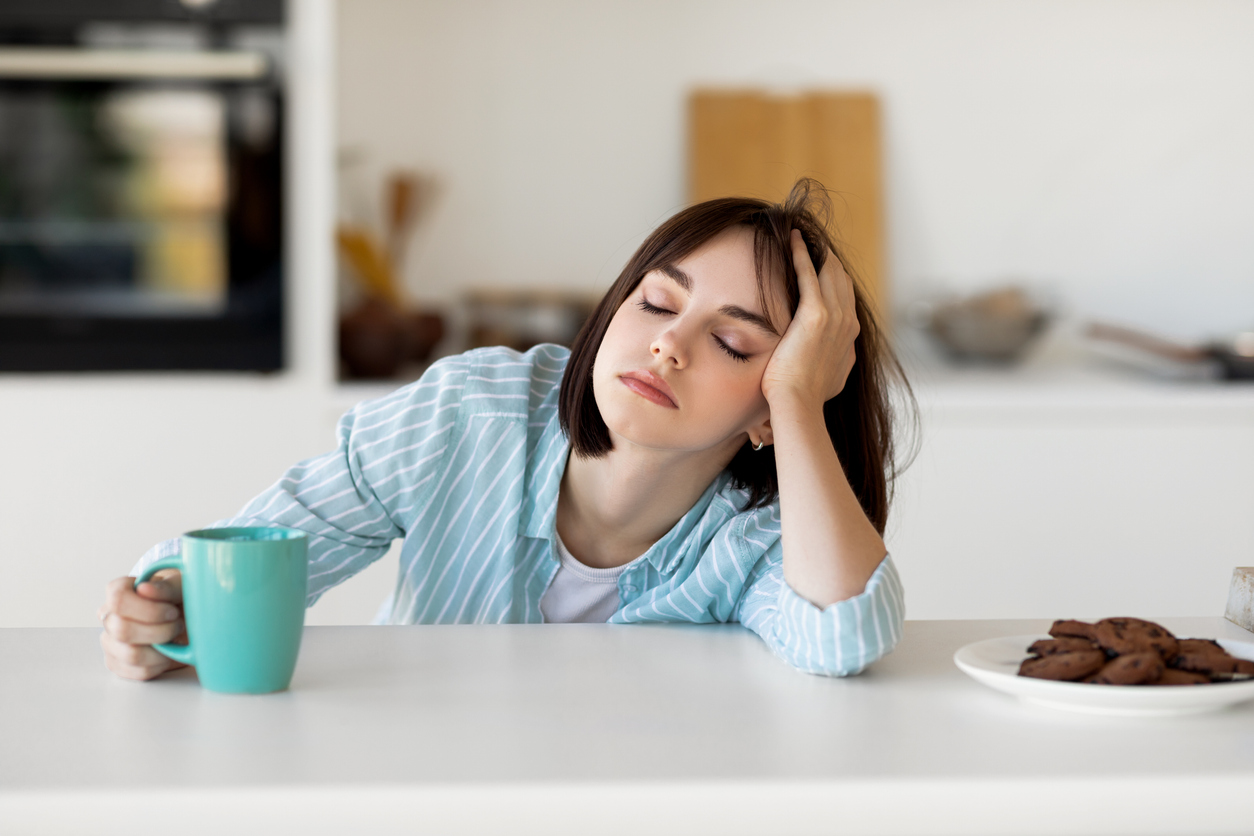Iron deficiency: Spotting the symptoms and early warning signs
Iron deficiency is a common problem, with the World Health Organization (WHO) estimating that more than 2 billion people are affected. Women of childbearing age are most at risk. Find out more about the symptoms and available treatments.
Symptoms of iron deficiency and anaemia
Anaemia is one of the most common conditions caused by a lack of iron in the body. People with anaemia do not have a sufficient supply of oxygen to their organs. The most common symptoms include:
Iron is required to carry oxygen around your body. A lack of iron can mean that less oxygen is being supplied to your cells. This can cause you to feel that you are lacking energy and constantly tired.
Having low levels of iron in your body can lead to a reduction in the number of red blood cells. This condition is called anaemia. It can cause you to look pale, affecting your skin and mucous membranes (such as the inside of your eyelids) in particular.
Given that your blood is carrying less oxygen when your body is lacking iron, breathing difficulties and shortness of breath are common symptoms suffered during physical activity.
Iron deficiency and anaemia can put added strain on your heart, causing your heartbeat to become fast or irregular (arrhythmia).
A lack of iron in your body can stop your hair and nails from growing properly. You may notice that your nails are brittle or your hair is falling out more than normal.
Iron deficiency can cause headaches and make you feel dizzy and weak.
It is important to note that these symptoms can also be caused by other health conditions. If you suspect that you are suffering from iron deficiency, you should consult your doctor and have a blood test. Once your iron levels have been checked, you will be able to get an accurate diagnosis.
How is iron deficiency treated?
Treatments for iron deficiency aim to boost the low iron levels in the body and replenish iron stores. This can be achieved by taking iron supplements in the form of tablets or capsules. You must consult your doctor before you start to take iron supplements because they can cause gastrointestinal problems and other side effects.
It is also important to improve your diet by eating plenty of foods that are rich in iron while taking supplements.
In some cases, an intravenous iron infusion may be required. This is most likely to be the case when oral iron supplements are not working effectively or are causing serious side effects. It is important to keep monitoring the iron levels in the blood to check that treatment is working and does not need to be changed.
What causes iron deficiency?
There are a number of possible causes of iron deficiency and the associated symptoms. People are most likely to have low iron levels because they are not eating a balanced diet and therefore not getting enough food that is rich in iron. Vegetarians and vegans may be at greater risk of suffering from iron deficiency because plant-based sources of iron cannot be absorbed as easily by the body.
People who are pregnant, breastfeeding or engaging in intense physical activity may find that their body needs more iron.
Gastrointestinal bleeding and blood loss caused by injuries or heavy/long periods can also cause iron levels to drop. This explains why women of childbearing age are most at risk.
Certain health conditions such as chronic bowel disease, stomach ulcers and kidney problems can affect iron absorption and metabolism, which can also lead to a deficiency.
What should you eat if you have iron deficiency?
If you suffer from iron deficiency anaemia, it is important to eat a balanced diet that includes enough foods that are rich in iron. Here is a list of foods that provide the body with plenty of iron:
- Red meat
- Poultry
- Fish
- Pulses (e.g. beans, lentils and chickpeas)
- Green leafy vegetables (e.g. spinach and curly kale)
- Wholegrain products
- Nuts and seeds (e.g. pumpkin seeds and sesame seeds)
- Dried fruits (e.g. apricots and raisins)
- Fortified cereals
Eating foods that are high in vitamin C (such as citrus fruits and peppers) with rich sources of iron can help your body to absorb the iron. You should also try to avoid tea, coffee and dairy products because they can all make it harder for your body to absorb iron.
How much iron do we need?
The daily recommended intake of iron varies depending on your age, gender and stage of life. According to recommendations, adult men need around 8 mg of iron a day and women of childbearing age need around 18 mg of iron a day in order to avoid the symptoms of iron deficiency. The recommended daily intake increases to around 27 mg during pregnancy and to 30 mg while breastfeeding.

By Dr Marie-Christin Eisenbrand, Specialist in Gynaecology and Obstetrics FMH at Sanacare
